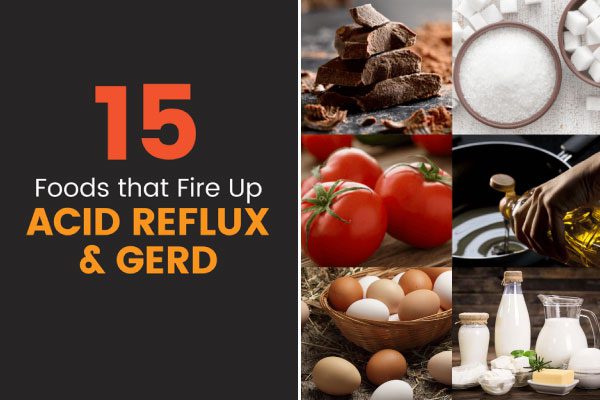These Are 15 Worst Foods For Acid Reflux

Do you suffer from GERD (gastroesophageal reflux disease)? If yes, you would probably be familiar with Acid Reflux. Even if you aren’t familiar with it, it is worth learning about it because the disease and its associated symptoms can wreak havoc in your body. This is a painful disorder that can be chronic and affects digestion and causes acid reflux.
Acid reflux creates a burning sensation that’s often referred to as heartburn. It occurs when acid returns to the esophagus after entering the stomach. This bothersome effect of GERD force people to experience breathing difficulties and keep grasping at their chests. It happens because acids flow backward, towards the esophagus, due to which swallowing becomes difficult, and you’ll feel as if there’s a lump in the throat. The problem then affects other body parts as well, eventually affecting your day-to-day activities and nighttime sleep. Certain foods can alleviate GERD symptoms, including acid reflux while some foods aggravate them. Want to know more about them? Continue reading to find out.
1. Fried food
By consuming fried foods, even if you are eating them in moderate quantities, you will be putting yourself at risk of digestive discomfort, particularly acid reflux. There’s no point in consuming fried foods because you will be mixing unhealthy fats with healthy fats. Fried or fatty foods are dangerous when having acid reflux because this cause the Lower Esophageal Sphincter (LES) to relax. It then cannot perform its duties appropriately and proactively.
Wondering what LES is? It is a bunch of muscles the separate the stomach from the esophagus. The role of LES is to seal the esophagus’s bottom to prevent food from traveling back upwards after getting deposited into the stomach. When you consume fatty and greasy foods, the lower esophageal sphincter doesn’t get adequately tightened, and this action causes stomach acids to travel back up to the esophagus. So, ideally, you should be avoiding foods like funnel cake, French fries, and fried chicken as these take too long to digest, and that’s why the reflux system also lasts longer.